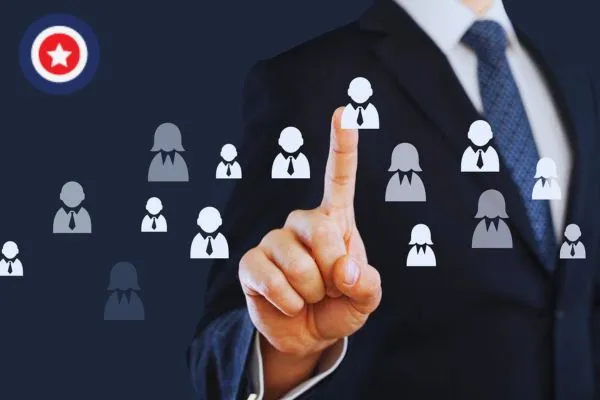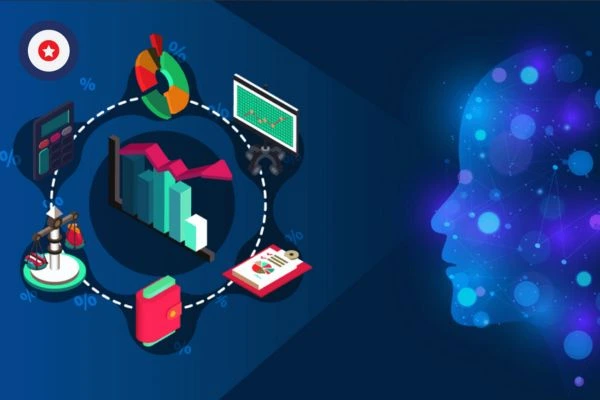
How to Earn Money With Google AdSense
26 September 2024
How to Get More Followers on TikTok
26 September 2024HRM- Human resource management is simply the act of hiring, assigning, recruiting as well as managing employees of an organization. Human resource management is called HR in short.
The HR department is not only charged with recruiting competent employees of organizations but is also responsible for overseeing the governing policies of all the employees as well as the employer and employee relationships.
An HR personnel must manage the employees of organizations, emphasizing how employees are great assets to an organization and also taking into cognizance how different employers can make use of their employees effectively, use them to maximize the growth and progress of the organization, and as well reduce risk.
IMPORTANCE OF HUMAN RESOURCE DEPARTMENT
The aim of creating a Human resource management department in an organization is to manage people in various workplaces for organizations to achieve their goals, ensure good relationships between employers and employees, and enhance team spirit amongst the employees. When you manage people (employees) effectively, the HR manager can recruit more hands with the required skills for their company to achieve their desired objectives.
HR- managers are not only empowered with the duty of employing workers, they are also saddled with the responsibility of monitoring the state of the job market to ensure that their company stays competitive and informed. They also need to ensure that employees’ benefits and take-home pay are equal to that of their colleagues in other companies their job roles are spelled out and each employee’s data is properly managed.
Functions of Human Resource Management
The functions of HR depend on the organization, business size, and the types of employed workers. The main objectives of HR managers recruit different Skilled and unskilled employees for companies and to enhance good communication and cooperation amongst employees. Other functions and duties are:
- Job analysis
An HR manager Determines the required skills and experience needed to perform specific jobs which makes it easier for the company to hire the right people, determine the right compensation, and create training programs where necessary.
- Workforce operations
HR creates working, health, and safety policies for the company in response to grievances of employees and I’m by labor unions.
- Measuring employees Performance
Evaluating employee performance is very vital because it not only helps to measure employees’ growth through constructive feedback, but also serves as a guide for raises, promotions, and dismissals.
- Incentive programs
One of the functions of an HR manager is to recognize the achievements of employees and how they can be rewarded by giving bonuses and other incentives.
- Professional development
HR managers do not only recruit they also give orientation to newly employed workers to advance their educational programs, employee training helps to improve their productivity, reduce turnover, and minimize supervisory needs.
HRM can be divided into the following four categories of objectives:
Societal objectives:
Societal objectives are strategic measures put in place to proffer solutions to social challenges or needs of an organization and its employees. Some of these are equal pay, equal opportunity, and legal issues.
Organizational objectives:
These are different actions taken by the HR manager or department to ensure the efficiency of an organization. These might include providing the right training, hiring the correct number of employees for specific tasks, and maintaining high rates of employee retention.
Personal objectives:
These are the available resources used to support the personal goals of individual employees. It also includes opportunities for education and career development, and maintaining employee satisfaction.
Human Resource Management Objectives
Human resource management has four main mission-driven objectives. These are
- Recruit, manage, and maintain productive employees. It helps each employee to make use of their skills and abilities. As well as ensure that employees have and receive the proper and required training they need for their task.
- Create a positive employee experience with a high quality of life and satisfaction in discharging their duties to make sure each employee puts in their best for the progress of the organization. HR managers also Communicate the policies, rules, and regulations guiding the company and employees.
- Ensure strict ethical, legal, and socially responsible policies and behavior of the employees in the workplace.
- Manage and reduce both internal and external changes that might affect employees and staffing productivity.
Skills and Duties of an HR Manager
Human Resource Management is divided into two phases, these are :
- into the pre-employment phase
- employment phase
In an organisation HR manager has the responsibilities of overseeing the following:
HRM DUTIES:
- Recruitment.
- Onboarding and retention of employees
- Managing and maintaining Talent and workforce in the company
- Assigning jobs roles to employees
- Ensure that employees develop their Career
- Benefits and Compensation of Employees
- Comply with laws guiding labor.
- Perform management roles
- Development and training of employees.
- Planning for succession
- Recognition and engagement of employees.
- Ensure team spirit in the organization.
HRM SKILLS:
- Communication fluency
HR managers should possess a high level of verbal and written skills in the required language.
- Recruitment and Talent Acquisition Skill
HR skill in this area involves writing job descriptions of employees, conducting interviews, assessing the eligibility of candidates, offering negotiation as well as onboarding new employees.
- Employee relations Skill
They need to have labor relations skills to print positive impressions about the organization in the hearts of employees and make them have a good working experience.
- Compliance with National legal requirements:
Every HR manager must be up to date with employment laws and regulations of the country the company is located.
- Management and resolution of conflict
HR managers must have Mediation abilities which will help in resolving and managing conflicts and other difficult situations in the organization.
- Good performance management:
HR Managers must set performance standards for employees and assist them to achieve laying down rules.
- Thinking Strategically
It is a sensitive position in an organization that requires high-level thinkers who align HR strategies with the organization’s goals.
- Good Analyst
Managers should have data analysis skills that help in analyzing workforce metrics and provide insights for decision-making in the company.
- Ability to Adapt
They must be able to deal with any changes in the workplace and issues in society.
- Confidentiality and privacy
A typical HR manager must have These skills which require knowledge of confidentiality and privacy.
HR Software
Almost all aspects of HRM have different sophisticated software that eases the HR procedures and recruitment process. Some of the Software includes Analytics tools and management tools to lessen the rigorous procedures involved in interviewing and vetting.
HRM software is provided as on-premises systems. Almost every area of HR tech has recently moved to cloud-based software-as-a-service platforms.
There are many vendors in the HRM market such as ADP, BambooHR, HROne, Isolved, Paycom, Paylocity, Personio, Rippling, SAP, and Workday. Which will make their work easier and more comfortable.
Why use human resource management Software (HRMS)?
HRMS is designed specifically to meet the vital needs of HR and make their basic administrative duties convenient. With the help of this software managers may be able to:
- Improve hiring processes
- Manage employees more effectively and efficiently
- Maximise workforce productivity
- Assigned and retained employees
- Maintain employee compliance with rules and regulations guiding and organization.




